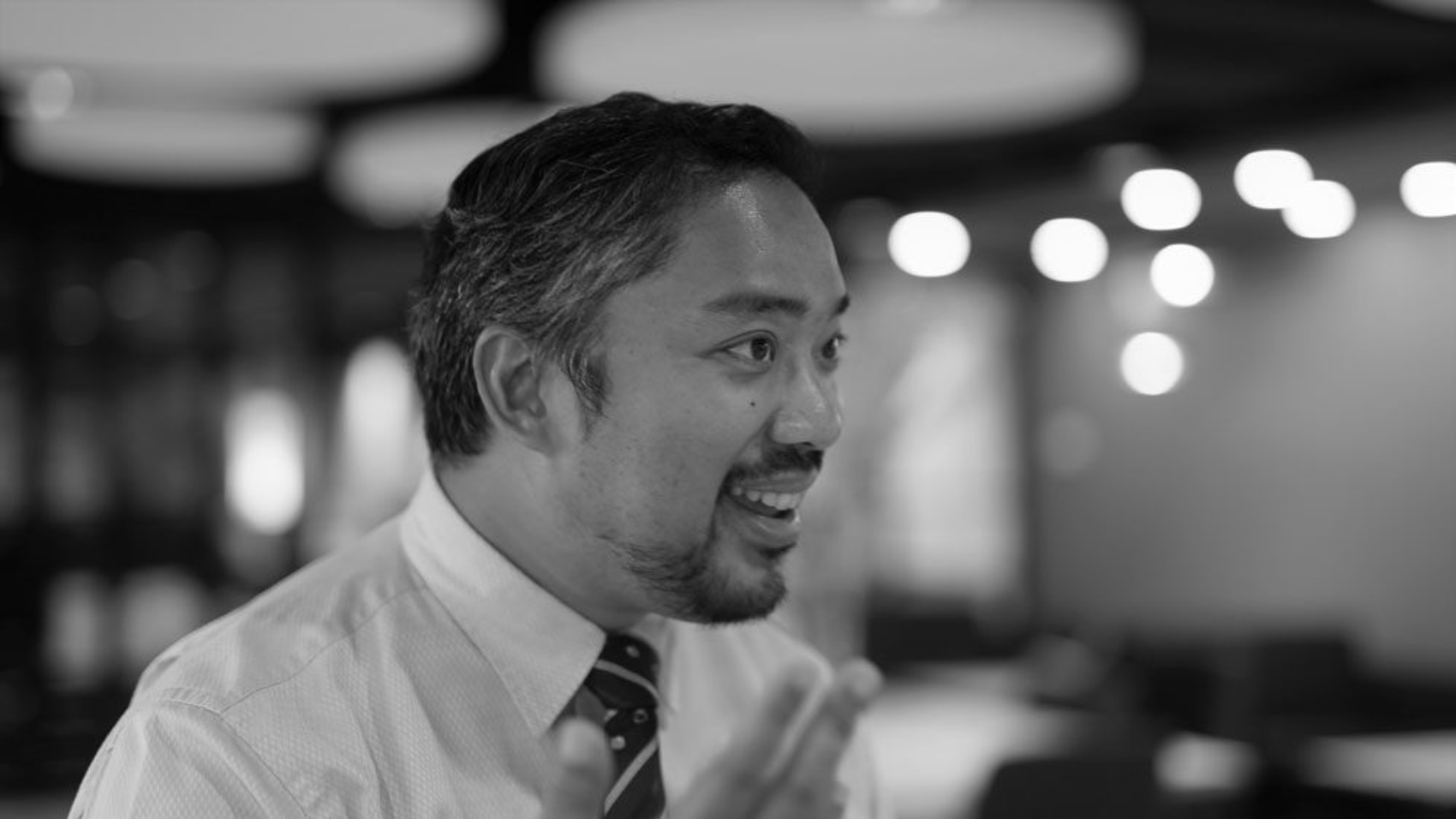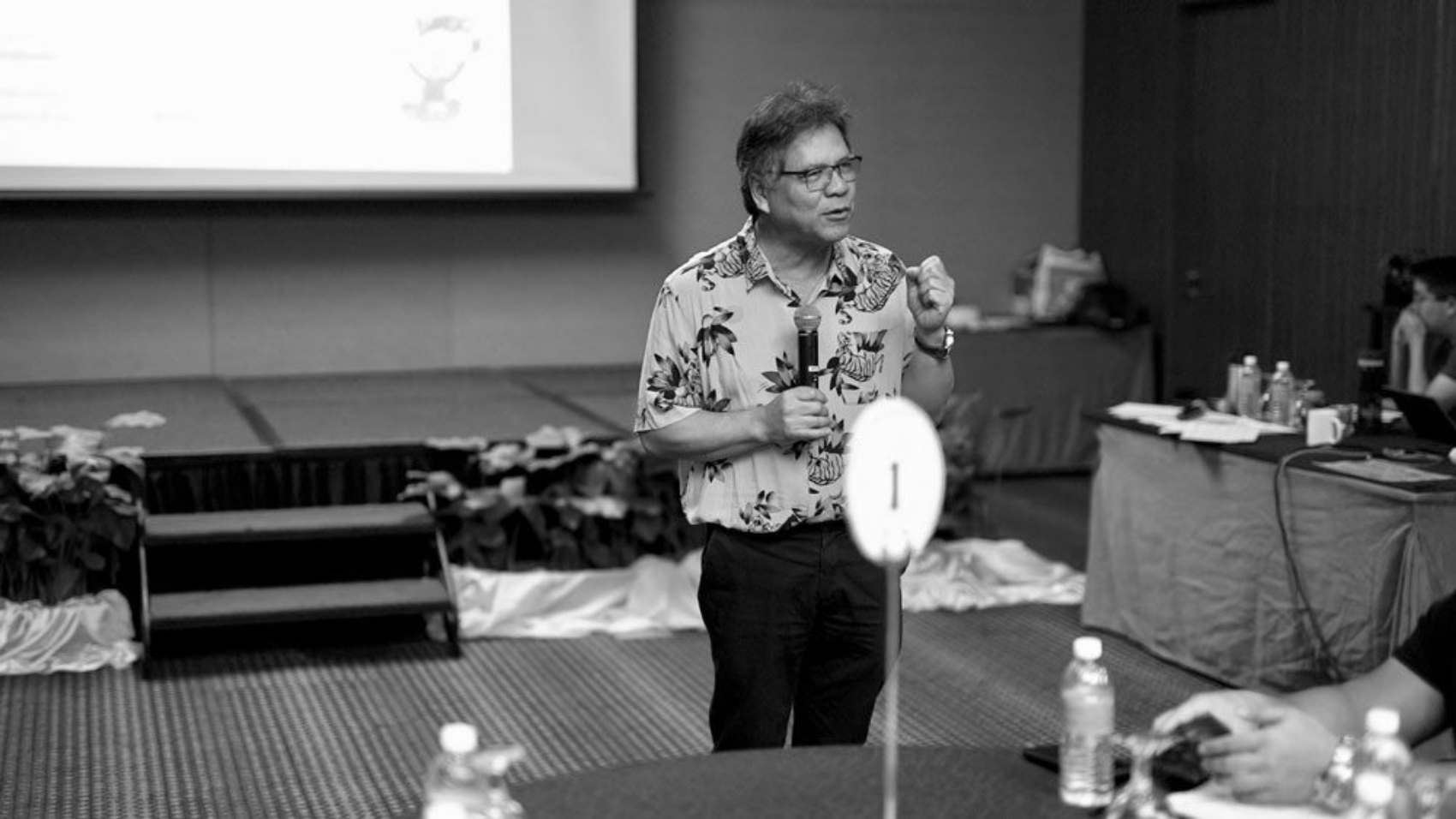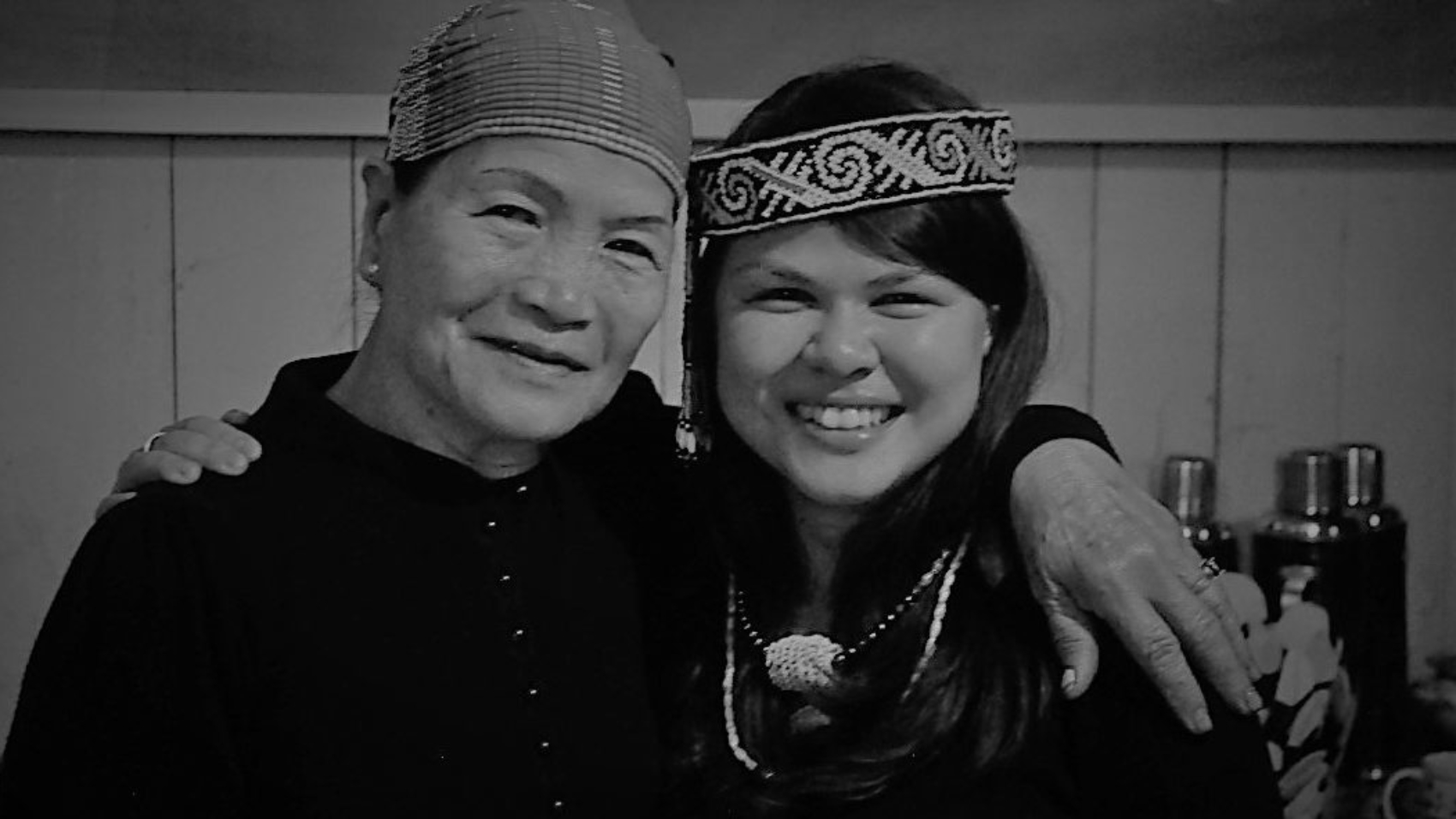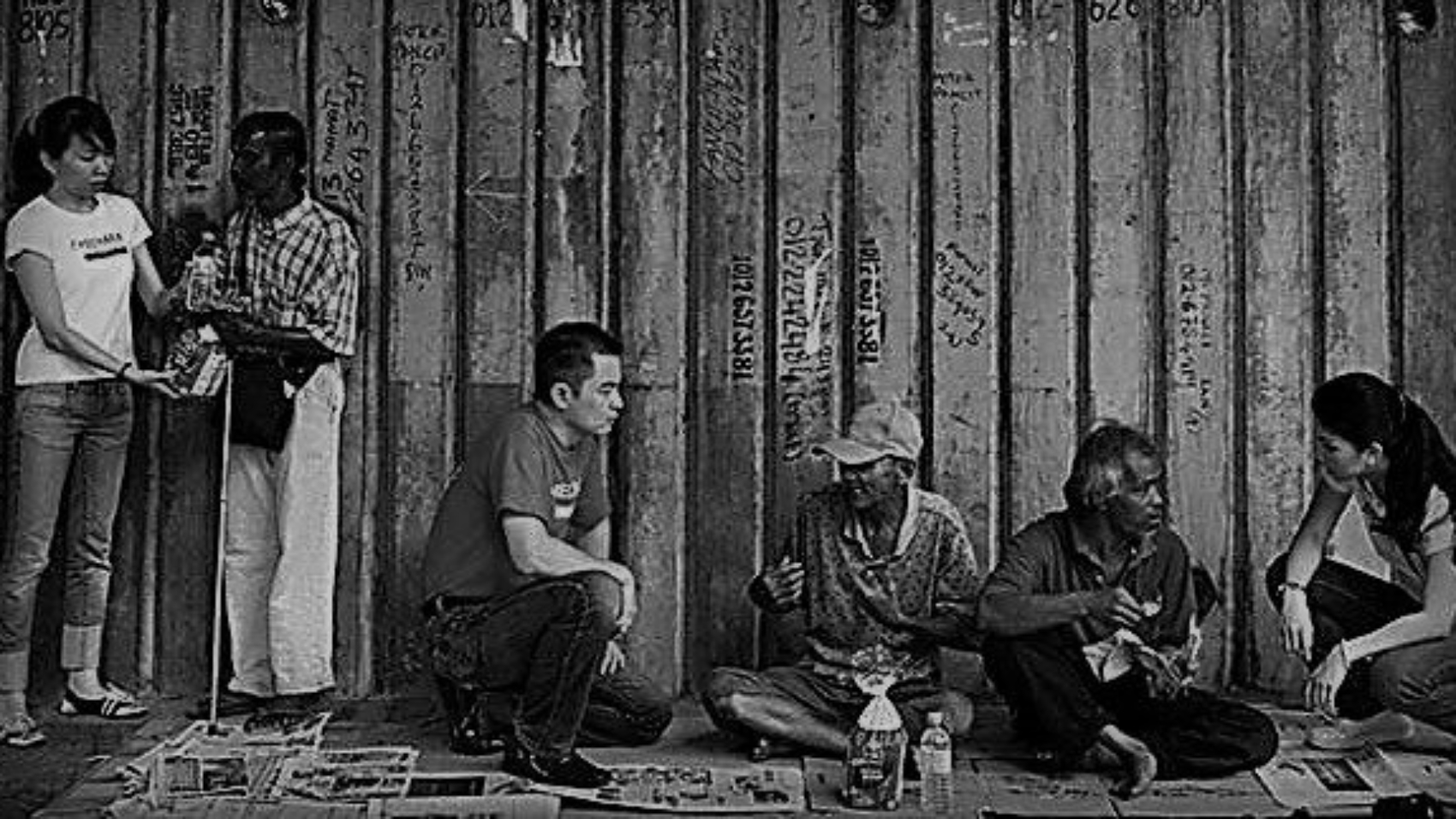Ziad Hafiz Razak is an Executive Vice President & Partner at PEMANDU Associates. He’s also the guy who spent 84 days travelling overland from Malaysia to England. Find out how this amazing journey changed his life and gave him new insight into the Game of the Impossible.
BFR Labs: Driving Businesses Towards A New Horizon
While oil and gas remain among the top commodities in the world today, there is a growing interest in alternatives to fossil fuels which are finite and in danger of getting depleted. Just last year, the International Energy Agency announced that investment in electricity surpassed investment in oil and gas for the first time ever.
The great oil crash in November 2018 signalled a dramatic decline in crude oil prices from a four-year high to under USD$50 a barrel in mere weeks. CNN business attributed the crash to a slowdown in global economic growth as well as relatively weak demand for oil in Europe and Asia.* Is this then indicative that oil is no longer the hot commodity it was ten years ago?
Times have changed and champions of Big Oil are starting to show an interest in renewable energy and a willingness to engage with policymakers about climate issues.** The renewable energy movement isn’t just limited to America. More and more countries are seeking to seeking to reduce a dependency on fossil-fuels and move towards renewable energy.
New Zealand is one such country who made the decision to regulate (and eventually reduce) emissions of greenhouse gases as early as 2007. In April 2018, Prime Minister Jacinda Arden announced an end to further offshore oil and gas exploration and vowed to reduce the country’s net greenhouse gas emissions to zero by 2050. New Zealand is well on its way to end its reliance on fossil fuels as its main source of energy as the country already obtains 80% of its electricity from renewable sources.
However, the next big challenge is faced by industries and products that rely on fossil fuels. Where does this change to renewables leave the energy companies who specialize in oil and gas? Will they be left out in the drive towards green and renewable energy?
Playing the Game of Impossible
While this shift away from oil and gas dependency itself is certainly challenging, PEMANDU Associates believe that it is possible to diversify and conduct feasible as well as profitable turnarounds.
As the saying goes, ‘acknowledgement of a problem is the first step towards its solution’ – first, companies should understand that their problem is only going to get worse as more countries start to remove their dependence on fossil fuels. The next step is to robustly assure a state of readiness.
PEMANDU Associates’ experience in utilising its proprietary BFR (Big Fast Results) Methodology to enable clients to define and achieve their goals with the 8 Steps of Transformation ©, has been key in assisting governments like Malaysia and Oman in diversifying their economy from oil & gas dependency. The oil and gas industry is one of Oman’s primary industries, with petroleum products fuelling the economy and enabling Oman’s development over the past 30 years. This dependence on oil subsequently caused Oman’s economy to be greatly affected by the 2016 global drop in oil prices. As a result, the government initiated the Tanfeedh programme aimed at unlocking the non-oil sector. Tasked with diversifying Oman’s economy, PEMANDU Associates suggested developing sectors such as manufacturing, logistics, tourism and fisheries – all of which were earmarked as having high potential – as well as holistically governing Oman’s energy sector.
PEMANDU Associates has also utilised the same methodology to enable private sectors in that particular field to enhance their downstream operations; the Pengerang Integrated Petroleum Complex, for example, was a recommendation by our team to serve as a centralised storage facility for the petrochemical industry. The facility was built as part of a public-private partnership between the state government, Petronas and foreign investment.
 In 2018, PEMANDU Associates was tasked by an oil and gas company in New Zealand to facilitate a strategic workshop to identify a feasible turnaround strategy for the company in the shortest possible time. This was underpinned by a true north of steering the company away from oil and gas dependency.
In 2018, PEMANDU Associates was tasked by an oil and gas company in New Zealand to facilitate a strategic workshop to identify a feasible turnaround strategy for the company in the shortest possible time. This was underpinned by a true north of steering the company away from oil and gas dependency.
To get the needle moving, the three-day strategic workshop involved 30 participants from the top levels of the company with a total of 720 total man hours of effort.
Prioritisation is a key component of our methodology. With that, the workshop focused on key enablers that would yield real outcomes for the company. These included expanding into new markets within the industry by offering new products, identifying new markets and client demographics, and diversifying the company’s business portfolio by applying existing competencies to a different sector.
The workshop generated 34 business ideas which were categorised according to impact and feasibility: 20 ideas were classified as ‘Breaking New Grounds’ ideas; and 14 as Business Opportunities for deprioritised ideas. PEMANDU Associates recommended that the company continue with the BAU ideas they had already planned for, but spice things up by adding fresh ideas to elevate the company beyond the norm.
Fresh eyes, bold new ideas
 PEMANDU Associates believes that the only way for oil and gas companies to diversify is to expand into new markets or look for fresh opportunities in new industries. As the client already had experience in construction, most of the high priority suggestions were aimed at strengthening its foothold in the construction industry while scaling back its oil and gas operations.
PEMANDU Associates believes that the only way for oil and gas companies to diversify is to expand into new markets or look for fresh opportunities in new industries. As the client already had experience in construction, most of the high priority suggestions were aimed at strengthening its foothold in the construction industry while scaling back its oil and gas operations.
The top new idea suggested was to expand into waste management by repurposing waste into building materials. With China’s plastic waste ban that started in January 2018, countries around the world are scrambling to find a substitute for China, turning instead to Southeast Asia. However, Southeast Asian countries are now following China’s example and closing their doors to waste imports – starting with Vietnam in July 2018, Thailand and Malaysia in October 2018 and now the Philippines in January this year. New Zealand previously shipped 15 million tonnes of waste plastic a year to China, which means that there will be a serious plastic waste build-up very soon if alternatives are not found. Repurposing plastic waste into building materials is an innovative and green alternative that can reduce the amount of discarded waste through a low energy and eco-friendly recycling process.
Another opportunity suggested at the workshop was to provide modular residential housing by incorporating industrial building system (IBS) techniques when building housing units. This was in light of construction trends in the region revealing a concentration of construction activity in the residential sector. And on top of that, the government’s recent launch of the KiwiBuild program which aims to build 100,000 quality affordable homes for first home buyers within 10 years. With IBS techniques, units would be built in the factory and assembled onsite – meaning that units could be built faster, cheaper and still allow for flexibility in design.
Towards a new horizon
 While it is still early days yet, suggestions from the workshop were well received by the client who is now in the process of implementing the initiatives in phases in the next 5 years. Part of the PEMANDU Associates process is to aim for the seemingly impossible while making significant and regular progress along the way.
While it is still early days yet, suggestions from the workshop were well received by the client who is now in the process of implementing the initiatives in phases in the next 5 years. Part of the PEMANDU Associates process is to aim for the seemingly impossible while making significant and regular progress along the way.
In this case, the goal was not to entirely discourage the client from continuing with its work in the oil and gas industry, but rather, to offer fresh new ideas to diversify and expand its horizons with greater confidence beyond their original industry.
Source: *CNN Business, **Bloomberg
Transformation on the Street: Has the Smoking Ban Made a Difference to Malaysians?
It’s been just over 2 months since the smoking ban was implemented in Malaysia. How have the smokers, non-smokers and business owners been affected since?
PEMANDU Associates Away Day 2019
As the old adage goes, ‘one step back, two steps forward’. Watch what went down at PEMANDU Associates’ 2019 Away Day.
Why Transformations Fail
Transformation is often on the agenda of many governments and businesses. And with the plethora of talents nestled within these organisations, it begs the question: why do some pursuits of transformation miss the mark?
Fear of the road less travelled.
 It would be stretching the truth to say that all roads to transformation are wide, open and free from blockages. The work that PEMANDU Associates engages in is deeply rooted in their Big Fast Results (BFR) Methodology – 8 Steps of Transformation© to deliver gargantuan results in as short a timeframe as possible. But often, the greater the destination, the tougher the journey.
It would be stretching the truth to say that all roads to transformation are wide, open and free from blockages. The work that PEMANDU Associates engages in is deeply rooted in their Big Fast Results (BFR) Methodology – 8 Steps of Transformation© to deliver gargantuan results in as short a timeframe as possible. But often, the greater the destination, the tougher the journey.
This is why the methodology has to be coupled with a paradigm shift of what the firm calls “The Being” by instilling an intensive discipline of action within the organisation committed to the pursuits of transformation.
As the late Leo Burnett, founder of one of the world’s leading advertising agencies, once said “reach for the stars – you may not get one, but at least you won’t come up with a pile of mud either.” Businesses and governments must be willing to take the road less travelled by setting Olympic-sized targets. And in doing so, must be willing to exercise some grit in putting them into motion.
One says left, another says right.
Another hindrance to any transformation journey is a lack of employee engagement, insufficient management support, poor or even non-existent cross-functional collaborations and a lack of accountability within the organisation.
In a particular project that PEMANDU Associates embarked on, the firm was tasked with helping them identify new revenue streams to boost their profitability. However, its attempt at transformation appeared hamstrung at the start. While the programme obtained the buy-in of its top leadership, other business units within the group were unfortunately more difficult to win over. From their perspective, however, PEMANDU Associates understood that their lack of commitment to the endeavor stemmed from their view that certain aspects of their business were not triggering any red flags and thus, did not warrant transformative action – a classic case of “if it isn’t broken, don’t fix it”.
Alignment is imperative. And one of the ways that PEMANDU Associates has successfully achieved this is through its Lab process. This entails getting key stakeholders across different units into a room for a period of six to eight weeks to collectively diagnose key issues and subscribe strategic enablers to move forward.
For the firm’s public sector clients, this process involves key players from the private sector as well, for their perspectives. The result is cross-functional alignment that sets the scene for a collaborative journey ahead.
A lack of detail in delivery
 Many governments and businesses alike have beautiful targets. But these often fall apart due to an absence of detailed action plans to move the needle. The level of detail required does not stop at setting stringent timelines of delivery but extends to tracking results meticulously and frequently.
Many governments and businesses alike have beautiful targets. But these often fall apart due to an absence of detailed action plans to move the needle. The level of detail required does not stop at setting stringent timelines of delivery but extends to tracking results meticulously and frequently.
For PEMANDU Associates’ private sector clients, a practice they employ religiously is developing segmented profit and loss statements. For example, at its most basic level, if you are an airline, it means rigorously tracking yield per flight. This will help you identify specific pain-points to prioritise business efforts.
Following our experience on the aforementioned project, we found that for transformations to take root, it is crucial to establish laser focus on identifying the fundamental issues to enable targeted solutions in being achieved.
Discomfort with being uncomfortable
The frameworks outlined above share one commonality – tough work. Organisations need to be comfortable with discomfort from end-to-end on their transformational pursuits. But the good news is that with the right structures in place, we can at least be better equipped to stay the course in playing what the firm calls the “Game of the Impossible”.
Recruitment in the Digital Age
Seeing to believe
The art of recruitment has evolved throughout the years.
 Before the internet and social media, the modus operandi for companies was to put out a piece of advertising with a nice headline, coupled with requirements for the job. Then, hope that qualified individuals would find their ad in the sea of job postings nestled in the pages of local newspapers or trade magazines.
Before the internet and social media, the modus operandi for companies was to put out a piece of advertising with a nice headline, coupled with requirements for the job. Then, hope that qualified individuals would find their ad in the sea of job postings nestled in the pages of local newspapers or trade magazines.
In this digital age, where authenticity and real experiences are favoured over mere rhetoric, there is a need for companies to re-imagine their approach to recruitment. Gone are the days where simply claiming that company X is a good place to work would be good enough to lure in a resume. Today’s candidates are more interested in real stories. And they want them to come from the people working in the company itself.
However, despite studies that reveal a 34% increase application rate* for companies that use the videos as a recruitment tool, some companies still err on the side of caution, seeing the production of a good video as “unnecessary spending”. No doubt, investing in a recruitment tool comes at an expense. However, the cost of replacing an employee can go up to four times their annual salaries, with bad recruiting costing companies over $50,000 on average.**
Storytelling the way forward
DIALOG – a leading oil and gas service provider, saw the need for a recruitment video. The challenge? They wanted this to double as a corporate video.
Sticking to a steadfast belief that every good story deserves to be told authentically, the team at COMMUNICATE by PEMANDU set out on a different approach to dig up compelling stories and experiences from DIALOG’s very backbone – their staff.
But in order for the video to double-hat as a corporate video, the team needed to give DIALOG a brand proposition to anchor their staff’s stories on. What was immediately clear in the preliminary research was that the company demonstrated a penchant for venturing into new business opportunities. This pointed to an ironic comfort with being outside of their comfort zone. And thus, emerged the guiding theme for the video.
 With that, COMMUNICATE sought to tell the stories of people who, in the same spirit, embarked on a journey of personal transformation by getting out of their comfort zones. Each of these stories revealed how DIALOG had given them the space and opportunities to do things they would have never imagined.
With that, COMMUNICATE sought to tell the stories of people who, in the same spirit, embarked on a journey of personal transformation by getting out of their comfort zones. Each of these stories revealed how DIALOG had given them the space and opportunities to do things they would have never imagined.
It helped that many had stories to tell from experiences beyond the confines of their office cubicles. Team COMMUNICATE wanted these experiences to shine through to excite potential candidates and drive home the theme of exploration. To do so, they spent two days documenting some of the off-site work that our protagonists were involved in.
Not wanting to sugar-coat, many of these stories involved humorous quips, for example, one member of staff who when describing a particular off-site experience, found himself asking “what am I doing here?”
The end-product was an amalgamation of experiential stories peppered with honest accounts from people who know the company best. All to paint a clear picture for potential candidates of what a career with DIALOG could look like, but more importantly, to make known the inevitable yet transformative opportunities to explore new terrain beyond the confines of comfort – the very lifeblood of all of DIALOG’s successes.
Source: *TalentLyft , **Collingwood Search
Where to, Malaysia Baharu?
May 9, 2018 was a historic day for Malaysia. Malaysians collectively decided a bold change was needed. And so, after more six decades into its independence from British rule and as a sovereign nation, a new government took seat in office. The change not only signalled a significant shift in political ideology and the transformation of the country’s administration, but also the direction of its economic development.
The Malaysia Plan, strategically crafted and executed since 1966, and now in its 11th edition have guided Malaysia’s development for more than five decades. The country had over the years evolved from a mining and agriculture-based economy to one that is manufacturing and export-oriented, as well as more diversified with a push towards the services and high-income sectors. Its affirmative action bumiputera agenda has also played a vital role in its growth trajectory as the government sought to ensure equitable distribution of wealth for all Malaysians.
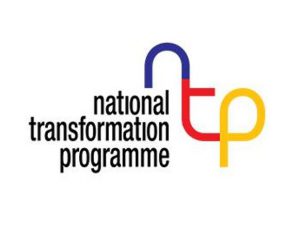 Cognisant of the need to radically transform its economic and social fabric, the then government, embarked on a National Transformation Programme in 2009 to focus on delivering socio-economic improvements to put Malaysia firmly on the path out of the middle-income trap and propel it into a high-income nation status.
Cognisant of the need to radically transform its economic and social fabric, the then government, embarked on a National Transformation Programme in 2009 to focus on delivering socio-economic improvements to put Malaysia firmly on the path out of the middle-income trap and propel it into a high-income nation status.
A decade has since passed.
The transformation programme has yielded some very positive outcomes. A case in point: as at 2017, the country’s gross national income (GNI) per capita had increased to US$9,650 (RM39,565) from US$7,640 (RM31,324) in 2009, just US$2,576 (RM10,562) short of the World Bank’s high-income threshold of US$12,236 (RM50,168). And in doing so, Malaysia has moved out of the middle-income trap.
Is Malaysia economic growth still on track?
Economic analysts at large are awaiting the release of the Malaysian Economic Report by the Economic Planning Unit, which is expected to be available to the public at the end of the first-quarter 2019. This report will essentially provide the complexion of Malaysia’s growth prospects. Economists also maintained that despite expectations that Malaysia may miss its 2020 target for a balanced budget, the country’s economy remains robust and fundamentally sound, with its A-rating for sovereign debt intact and the labour market also envisaged to remain stable. Malaysia also registered a 350% increase, from RM14 billion in 2017 to RM49 billion in 2018 in foreign direct investments (FDI) within the first nine months of 2018 compared with the same period in 2017.
Malaysia marches the Industry4WRD
In spurring future growth, the new administration has also worked to introduce a national policy framework on the fourth Industrial Revolution. This is developed to promote innovation, creativity and competitiveness in embracing the intensification of the digital revolution.
In the mid-term review on the 11th Malaysia Plan, the government aims to intensify the adoption of Industry 4.0 related technologies.
The policy provides the action plan in catalysing the adoption of Industry 4.0 related technologies to increase productivity and competitiveness of the manufacturing sector. Against this backdrop, the country is poised for a continued ascent on the value chain.
Malaysia, according to Datuk Darell Leiking, Minister of International Trade and Industry, will be meeting these challenges head-on with the implementation of the National Policy on Industry 4.0 – Industry4WRD, with the endeavour to incentivise, implement and facilitate digital transformation of the manufacturing sector and its related services.
The recent 2019 Budget had provisioned several incentives to aid the industries along this journey, such as the RM2 billion fund under Services Sector Guarantee Scheme (SSGS) accorded to small and medium-sized enterprises (SMEs) that invest in automation and modernisation. Under this scheme, the government will also provide financing guarantee of up to 70%.
![]() An Industry Digitalisation Transformation Fund, which is a subsidy allocation amounting to RM3 billion has also been approved to promote the adoption of artificial intelligence amongst the industries. The Malaysian Investment Development Authority (MIDA) is also taking an active role through its High Impact Fund by facilitating a matching grant to promote greater research and development (R&D), international certification and standards, as well as modernisation activities amongst the industry.
An Industry Digitalisation Transformation Fund, which is a subsidy allocation amounting to RM3 billion has also been approved to promote the adoption of artificial intelligence amongst the industries. The Malaysian Investment Development Authority (MIDA) is also taking an active role through its High Impact Fund by facilitating a matching grant to promote greater research and development (R&D), international certification and standards, as well as modernisation activities amongst the industry.
These measures are expected to significantly boost the government’s efforts to position Malaysia as a strategic partner for smart manufacturing, primary destination for high-technology industries and total solutions provider for manufacturing sector and related services in the region.
As Leiking put it, Industry4WRD will pave the way for enhanced productivity, job creation and the establishment of a high-skilled talent pool for the manufacturing sector, and ultimately contribute to the economic prosperity and societal well-being of the nation. The Ministry of International Trade and Industry has been allocated RM210 million over the course of three years between 2019 to 2021 to take on the Industry 4.0 agenda.
The elephant in the room
Meanwhile, Dato’ Sri Mustapa Mohamed, the former Minister of International Trade and Industry and current Member of Parliament for Jeli in Kelantan, raised three pertinent points for the country to cope with as it enters the era of New Malaysia. The first, as Mustapa put it, is to redefine the bumiputera agenda to make it a more inclusive policy. “We must find a balance between the need to continue promoting the bumiputera agenda while ensuring wealth distribution among other races. There is a need for us, as Malaysians, to sit down and search for a national consensus. There’s the elephant in the room,” he said at the Youth Economic Forum held in Kuala Lumpur last year.
![]() He also noted the need to reduce the brain drain and for more job creation. Apart from stimulating the economy to spur employment, Mustapa also stressed on the need for political stability, key institutional reforms and the eradication of corruption to instil and entrench investor confidence in the country. He also said the government must be conservative in fiscal spending, highlighting the need to adjust to new economic realities. This, as he cautioned, was not only due to the country’s debt position, but also its shortfall in income with the removal of the Goods and Services Tax (GST).
He also noted the need to reduce the brain drain and for more job creation. Apart from stimulating the economy to spur employment, Mustapa also stressed on the need for political stability, key institutional reforms and the eradication of corruption to instil and entrench investor confidence in the country. He also said the government must be conservative in fiscal spending, highlighting the need to adjust to new economic realities. This, as he cautioned, was not only due to the country’s debt position, but also its shortfall in income with the removal of the Goods and Services Tax (GST).
Dr. Azem Fazwan Ahmad Farouk, an associate professor and director at the Centre for Policy Research and International Studies of Universiti Sains Malaysia, observed that we are Malaysians precisely because we can maintain our ethnic, cultural and religious diversity. In conceptualising a Malaysia Baharu, we should begin from the learning, retain the good, innovate the new, apply, and not hastily throw the baby out with the bath water.
Confronted with these realities, Malaysia may find itself at yet another crossroad. However, with acute learnings and lessons from the past 60 years, the new government does have their work cut out for them. The hope is that policies and regulatory controls remain both progressive and inclusive, as the country seeks to fulfil its potential as a globally competitive, sustainable and inclusive economy with opportunities for all.
Transformation on the Street: Facilitating Empowerment and Sustainability In A Rural Setting – A Project WHEE Perspective
Rhonwyn Hagedorn, a little lady with a big heart for the people of Bario. Channeling that love towards teaching and developing the community there, she hopes to open up new means of generating income for the “land of a hundred handshakes”.
Top Tips on New Year’s Resolutions from a Man Who Realises Them for a Living
New Year’s resolutions. Everyone makes them. Few keep to them.
PEMANDU Associates’ CEO and President, Dato’ Sri Idris Jala has built a career on turning around companies and helping governments to deliver on their promises. In between his business travels, we caught up for a quick chat to get his take on what makes a good resolution and how best to keep to them.
What are your New Year’s resolutions for 2019?
In December 2018, my team and I conducted an in-depth reflection of the “good, the bad and the ugly” of the past year. Based on this, we have set ourselves some “impossible” targets for 2019.
By impossible targets, we mean revenue and profit targets that we genuinely believe we will not be able to achieve based on our current way of doing things. For us, our plan is to double our profits and revenue in one year!
We believe these targets can only be achieved if we do two things:
Firstly, the management team, including myself, must behave and act in a manner that is truly transformational.
Secondly, all of us in the PEMANDU Group of companies must adopt the new way of working. This is what we call “Big Fast Results” or BFR philosophy of work.
When you examine the resolutions that people declare, what do think are the most glaring problems?
The most glaring problem with many resolutions is that they are ‘high-level’ – they are written at 30,000 ft and not translated into detailed 3ft action plans.
A good example is when Britain voted for Brexit. That was a resolution at 30,000 ft.
 After a few years of translating Brexit into an implementation plan, it is now blatantly obvious that the rose-tinted hopes of those who voted for Brexit will not be achieved.
After a few years of translating Brexit into an implementation plan, it is now blatantly obvious that the rose-tinted hopes of those who voted for Brexit will not be achieved.
Perhaps a little closer to home, would be a resolution to lose weight! If your resolution is simply to lose 15kg in the new year, that’s not a resolution – it’s a nice wish. This must be translated into a granular plan of action broken down into daily tasks surrounding exercise and diet.
There are some plans that look great on paper, but fall flat in practice. Where does it usually go wrong?
We all have beautiful plans at personal, corporate and country levels. Sadly, most do not achieve their plans. This happens because of two things:
Firstly, people do not exercise leadership to do what it takes to achieve the plans.
Secondly, people do not implement their plan using what I call the DMS approach i.e. Do it relentlessly, Monitor it continually and Solve problems recursively.
These are just some of the key principles in PEMANDU Associates’ proprietary 6 Secrets of Transformational Leadership and Big Fast Results (BFR) Methodology – 8 Steps of Transformation©, which have helped our clients produce fantastic results.
It seems like it takes a certain bravado to play the game of the impossible. Can one’s ego get in the way?
 If you don’t conquer the fear of failure, you won’t have the courage to play the game of the impossible. There is no guarantee of success but it gives you the best chance of success.
If you don’t conquer the fear of failure, you won’t have the courage to play the game of the impossible. There is no guarantee of success but it gives you the best chance of success.
Yes, ego can be a big hurdle:
The first pitfall presents itself if you are not humble enough to learn from others. Like it or not, there are many better ideas out there than yours. So, put aside your ego and seek help, even if you are the CEO of a company or President of a country.
Second, ego can also prevent you from owning up to mistakes you have made. Making mistakes is part and parcel of playing the game of the impossible.
If you are constantly trying to avoid making mistakes, you deprive yourself of the opportunity to learn from the best tutor that life can offer. I have met so many people whose egos get in the way of them truly playing the game of the impossible.
The pursuit of the impossible sounds like a lot of work. What keeps you sane?
As a Christian, I believe that the world doesn’t revolve around me – that takes a huge weight off my shoulders! No matter what your beliefs are, if you can accept that there are some things in life that are out of our control, you will find freedom and a resulting focus in achieving what you set out to do. And most importantly, you will be in a better place to enjoy the journey.
Speaking of enjoyment, it’s important to have a disciplined plan of action around this area, too. What I mean by this is to make intentional time to do the things that ‘fill your tank.’
 For me, it’s spending time with my family – this includes my extended family of guitars. When I’m at home, I try to get at least an hour in of playing and singing the blues to a captive audience (my lucky/poor wife, Ngan).
For me, it’s spending time with my family – this includes my extended family of guitars. When I’m at home, I try to get at least an hour in of playing and singing the blues to a captive audience (my lucky/poor wife, Ngan).
Many people are too fixated on the result that they forget to smell the flowers along the way. Aim for the impossible, but don’t forget to enjoy the ride!
A blessed New Year to all.
Transformation on the Street: Soft hearts. Hard feet. Kechara Soup Kitchen’s relentless fight against homelessness.
Mahatma Ghandi once said, “A nation’s greatness is measured by how it treats its weakest members.”
How are we treating the weakest, the stranger, the children, the ill, the weak and the struggling?
The witness of volunteers serving the hungry throughout the week in the Klang Valley illustrates a call to see and not forget our homeless neighbors. Knowing and holding their stories, their sorrows is one part of our humanitarian audit.
The Transformation on the Street team sought out Kechara Soup Kitchen (KSK), one of a number of Klang Valley NGOs sharing the vision of feeding and supporting the homeless.
The global issue at a glance
 Technology is evolving at breakneck speeds. Governments are introducing more inclusive economic policies. And yet, homelessness continues to be a prevalent issue.
Technology is evolving at breakneck speeds. Governments are introducing more inclusive economic policies. And yet, homelessness continues to be a prevalent issue.
In fact, the last global survey conducted by the United Nations in 2005 revealed a staggering 100 million homeless people worldwide, amounting to 2 percent of the world’s population.
Back home in Malaysia, the Kuala Lumpur City Council (DBKL) has recorded an estimated 1,500 – 2,000 homeless people in the city of Kuala Lumpur as of 2016, showing a threefold increase from the year 2014 which recorded only 600.
Why is homelessness an issue in big cities?
Two main culprits are at play here:
Firstly, rising inflation which has led to arguably the most difficult time for Malaysians to own a home.
Secondly, (and perhaps more tragically) circumstances, which are outside of one’s control. For some, these include treatments for illnesses that have cost them their life savings.
In the end, these all point to one word – “unaffordability.”
In light of this, it is not surprising to see the slew of Non-Governmental Organisations (NGOs) forming worldwide to bring renewed hope for the world’s urban poor. And Kechara Soup Kitchen (KSK) is one such example.
Armed with an iron resolve of its founder His Eminence The 25th Tsem Rinpoche who believes that no one deserves to go hungry, KSK has been relentless in their pursuit of fighting homelessness. And 10 years down the road, the fruits of their labour continue to testify to this.
But what has been the key to their success?
Big on data
 KSK has managed to amass one of the largest databases of “clients” or urban poor individuals. Each of their clients has a pictured profile complete with their background and medical information.
KSK has managed to amass one of the largest databases of “clients” or urban poor individuals. Each of their clients has a pictured profile complete with their background and medical information.
This wealth of data helps KSK to better understand each clients’ needs which then translates into smoother running of overall operations. And in the name of transparency, all this data is accessible through a mobile app.
Prioritisation over mere people-pleasing
KSK has demonstrated a willingness to evolve with the needs around them. Wee Jit Yeong KSK’s current Operations Executive, describes an ongoing issue with the more “seasoned” homeless – an over familiarity with living on the streets and thus, an unwillingness to live life any differently.
Given KSK’s emphasis on resolving the root cause of homelessness, Wee shares that KSK has since gone through a prioritisation exercise, shifting their focus on some of their more time-consuming and costly programmes such as job matching and job preparation to the “newly homeless.”
An endgame of economic empowerment
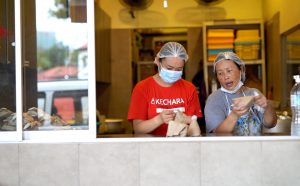 Beyond the homeless, KSK also supports the plight of certain financially struggling households – most notably, those of single mothers.
Beyond the homeless, KSK also supports the plight of certain financially struggling households – most notably, those of single mothers.
In addition to providing a monthly food distribution service to almost 400 marginalised households, KSK also provides training to single mothers, teaching them to sew items such as backpacks and rugs which are then sold back to KSK – all to help them make a simple income.
KSK’s emphasis on data and its willingness to evolve with the needs revealed in the said data, presents itself as a very well-oiled machine – a far cry from images one might naturally conjure up of a soup kitchen. Indeed, it stands as one of many examples of the value of having a soft heart for a good cause, but the hard feet to get the work done. The future is bright for KSK and the communities they serve.
